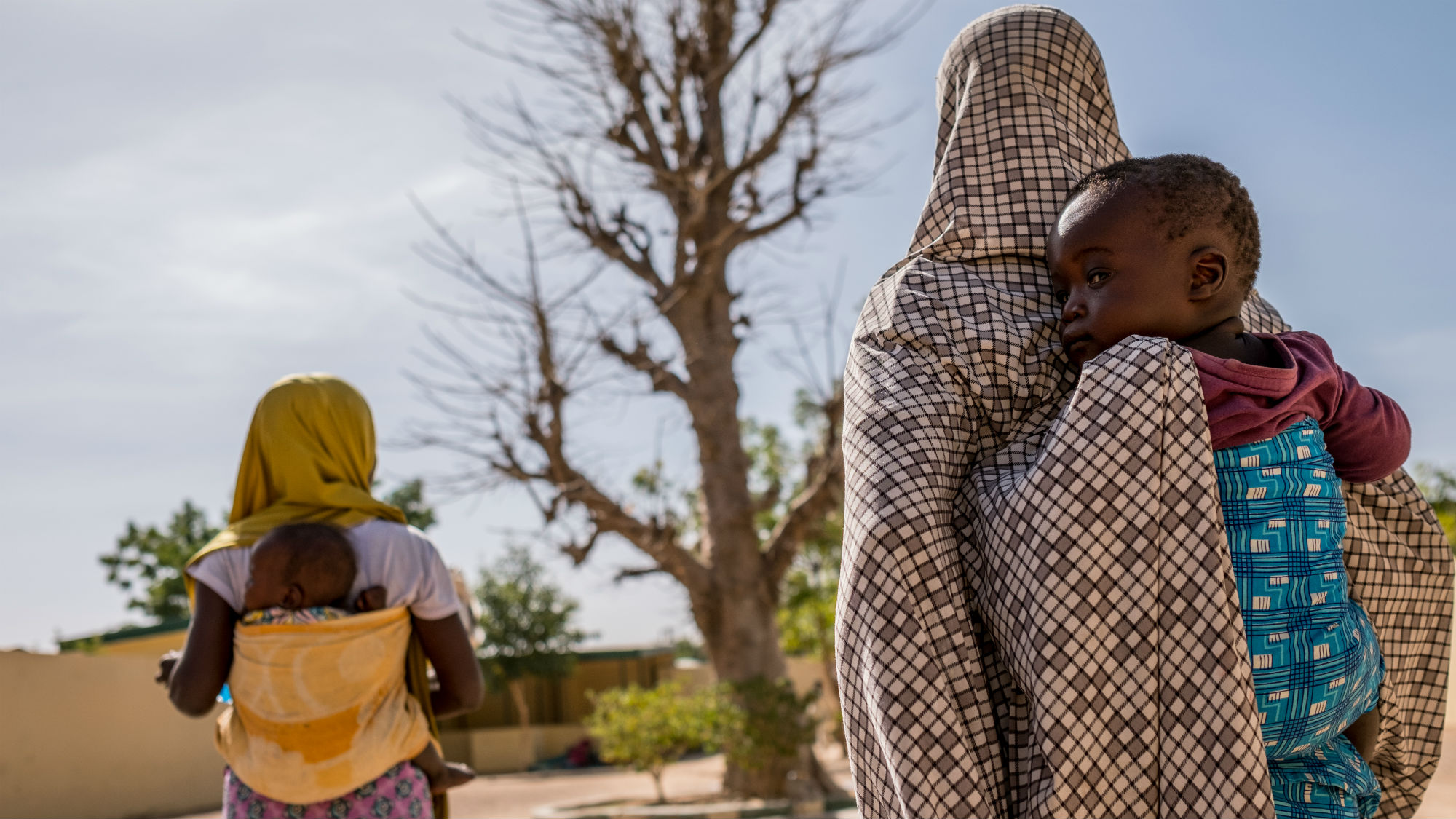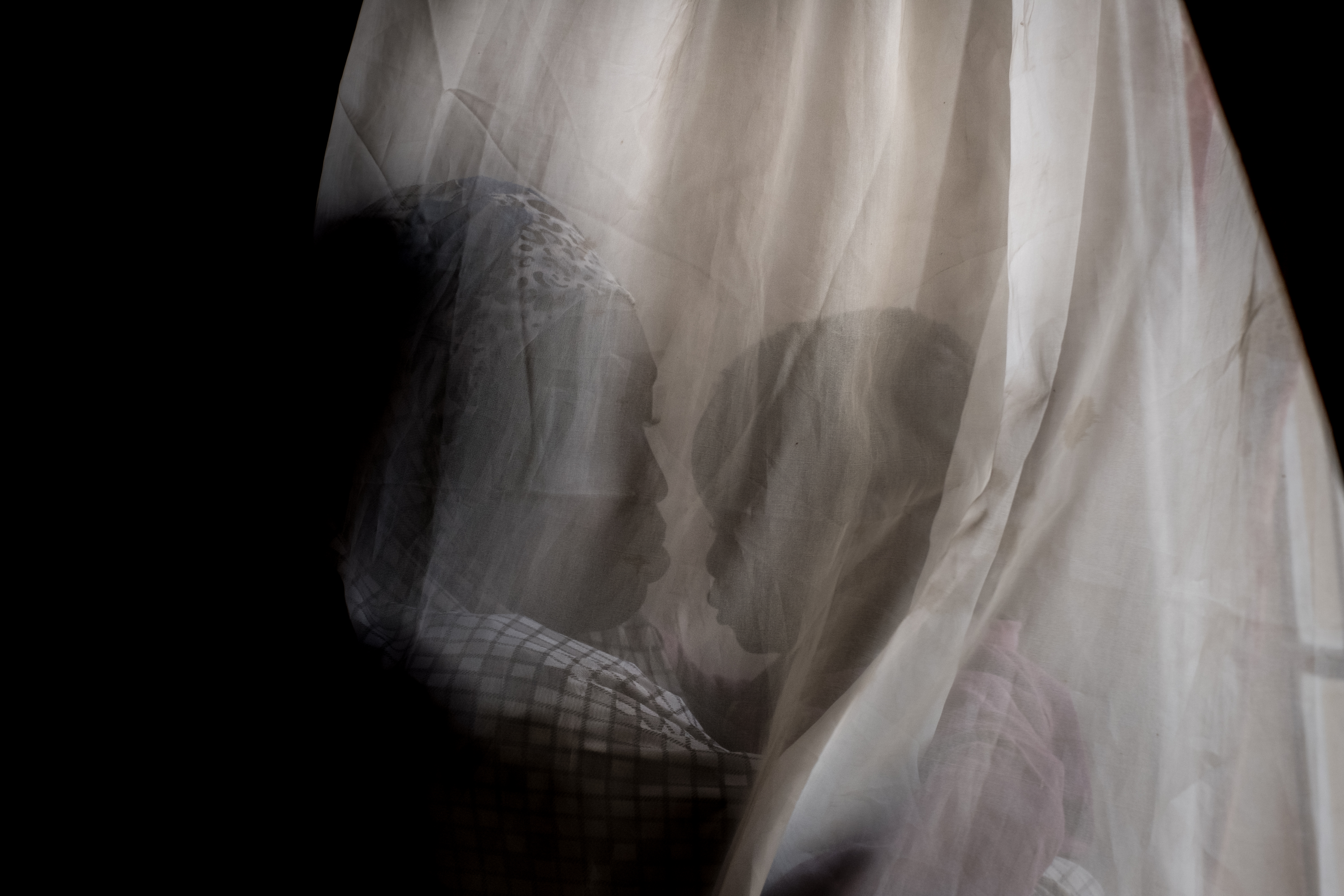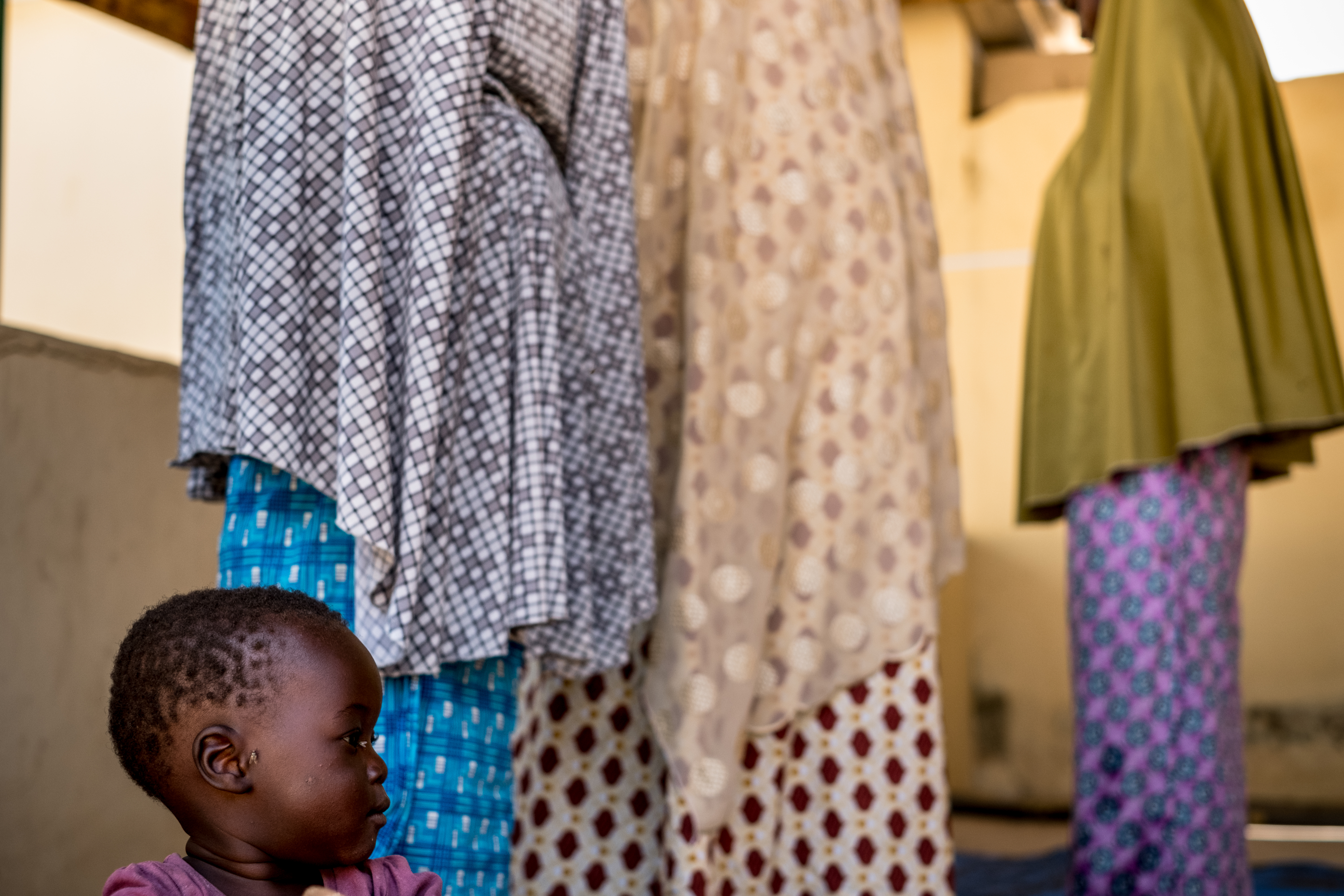These three girls escaped rape and captivity at the hands of Boko Haram
In a Marie Claire exclusive, three girls kidnapped by Boko Haram speak about their ordeal and their joy at being free

Celebrity news, beauty, fashion advice, and fascinating features, delivered straight to your inbox!
You are now subscribed
Your newsletter sign-up was successful
In a Marie Claire exclusive, three girls kidnapped by Boko Haram speak about their ordeal and their joy at being free
Words by Olivia Spring
Over three years ago, in April 2014, 276 schoolgirls were kidnapped in the middle of the night from their school in Chibok, Nigeria. Terrorist group Boko Haram claimed responsibility for the kidnappings, and the hashtag #BringBackOurGirls went viral. In the coming months, more girls would be abducted from their homes and villages. Since then some girls have managed to escape and this weekend, 82 girls were freed after negotiations with the Nigerian Government. Now for the first time, three of the escaped girls tell their story.
Dada, 15, was captured by Boko Haram when she was just 12 years old. She was hiding in her home in Jakana village after her and her older sister heard gunshots from the streets. Boko Haram kicked down their door and took both of them to a village with hundreds of other captured girls.
Dada describes the day when Boko Haram gathered all the children into a clearing and forced a girl to lie on the dirt in front of everyone.
'They said to us, 'If anyone tries to run away, this is the same treatment we will give you people.' The fighters then severed her head from the body. 'Her eyes were wide open,' Dada remembers.
Four months later, Boko Haram members came up to her when she was sitting outside, pointed to a young man, and said: 'This is your husband'. She was raped that night for the first of many times.
Celebrity news, beauty, fashion advice, and fascinating features, delivered straight to your inbox!
'I was feeling sad, as if he was violating my rights. I didn't want it to happen,' she said.
Dada eventually escaped, travelling for several days through the savannah with no food, before reaching a military camp in Cameroon. It was here that she learned she was pregnant.
She now has a two-year-old daughter, Hussaina. 'At times when I look at her I get angry,' she says, 'but after thinking, I calm myself down. Wherever I go, I go together with her because I can't be without her.'
Videos you may like:
Video you may like:

Gogoji, 17, was living in Ashigashia when she saw Boko Haram members at the market. She was around 13 years old - that night, they abducted her from her home.
'At midnight, I heard a bang on the door,' Gogoji said. 'They said "We're looking for a girl we saw at the market. She must come with us.''' It would be over two years before she was free again.
'I lived in a hut made of thatch,' she said. 'The men used to go and rob the houses of unbelievers and bring us the things to cook for them.'
One day, she was taken to a compound with other girls, where they were put on display for rebels to choose a bride. 'I was given to Abuwar, a middle aged Sharia judge and a fighter,' Gogoji said.
'I was raped every time he came around. I was raped a lot. In the second year of marriage I got pregnant. I didn't know I was pregnant for four months, when I started feeling something moving inside my stomach. My heart was broken. I was afraid. Giving birth in the bush is a very difficult thing, I had seen young girls do it before. And being pregnant by such people, knowing who they are, it broke my heart.'
Gogoji was able to escape when Abuwar took her to visit his mother's village, she travelled for two days through the forest, eventually finding the Nigerian military.

Hauwa, 17, was living with her family in Gwoza when Boko Haram entered the town, taking every girl they saw and putting them in a pick-up truck. The youngest girl she saw was twelve-years-old. They were all held in a room for three days before being told they had all been married.
'There was no ceremony. We were just given out as married.'
'I didn't like him,' Hauwa said of her husband, a young fighter who had two other wives. 'When he talked to me, I didn't answer him. We quarrelled and he would beat me. Everything was done to us by force. Every night he would come and rape me, and then I would quarrel to get him away.'
Hauwa gave birth to a son in the Sambisa forest and struggled for two months afterwards with abdominal pain. After overcoming this, she was able to escape to a village where her parents were staying. They walked for two days until they reached the military, where they were arrested and held for eleven days. After five months of detainment, she was released into an internally displaced peoples camp.
'There is no food, no detergent, no soap, no income,' said Hauwa. 'In the camp, when we move around people call us Boko wife, Boko child. If someone seeks my hand in marriage, he will ask that I kill my child before we marry. How can a mother kill her son? I love my son. We escaped thinking it would be better. Now it's very difficult.'
The current situation for the remaining girls held captive
Although some girls have escaped Boko Haram, many more remain in captivity. Those who are now freed face a long road of rehabilitation, and aid agencies such as UNICEF are working on the ground to help these girls restart their lives.
'UNICEF is on standby to support the Nigerian authorities in providing the specialized services needed.' A spokesperson told Marie Claire. 'We will help reunite the girls with their families and make sure they can continue their education in a safe environment. UNICEF calls on Boko Haram to end all grave violations against children, especially the abduction of children and the sexual abuse and forced marriage of girls.'
Unicef UK raises funds to protect children in danger, transform their lives and build a safer world for tomorrow’s children. As a registered charity they raise funds through donations from individuals, organisations and companies, and lobby and campaign to keep children safe. Unicef UK also runs programmes in schools, hospitals and with local authorities in the UK.
The leading destination for fashion, beauty, shopping and finger-on-the-pulse views on the latest issues. Marie Claire's travel content helps you delight in discovering new destinations around the globe, offering a unique – and sometimes unchartered – travel experience. From new hotel openings to the destinations tipped to take over our travel calendars, this iconic name has it covered.